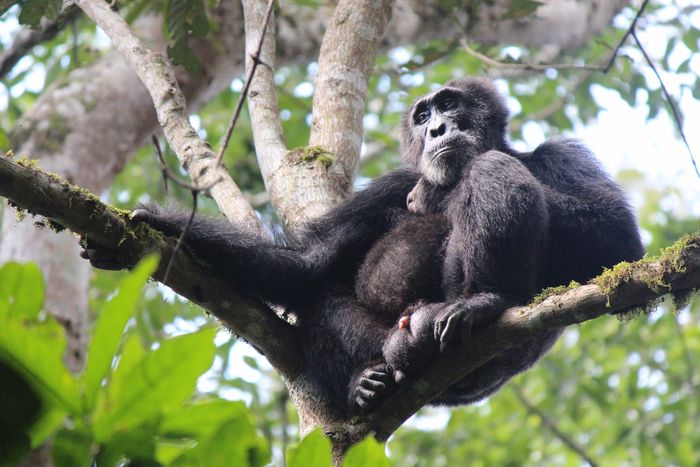Uganda was once ranked one of the friendliest countries in the world in a survey conducted by the global expat network InterNations. It was named ‘The Pearl of Africa’ by Winston Churchill, based on its beauty and tropical climate. However, every country or community has its strengths and weaknesses, success and challenges. Uganda suffers from widespread homophobia.
But, as it happens in many countries around the world, through hard work in education, dialogue and one-on-one interactions through tourism and business, we can change this. Uganda has a long way to go in establishing the rights deserved by our LGBTQI* (lesbian, gay, queer, bi-, trans- and intersexual as well as all those who do not fit the heteronormative pattern) citizens, but we have started and have made some progress.
Article 21 of the Ugandan Constitution clearly stipulates equality and freedom from discrimination and guarantees protection against discriminatory legislation for all citizens. However, despite this clear mandate in the constitution we continue to witness government oppression of the LGBTQI* community in Uganda. This happens through laws like the infamous “Kill the Gays-Bill” which turned into law in 2014, but was later in 2014 nullified by the constitutional court of Uganda. There was indeed a death penalty in place for a short time, which did not lead to executions, though.
The Ugandan Penal Code Act 1950, Section 145-147, which dates back to colonial times, prohibits same-sex sexual acts “against the order of nature” as felonies. Offenders are liable to imprisonment for life. The government has clarified that it has no intentions to introduce new anti-gay laws, as an applicable law already exists.
Despite this law still in place and prevailing negative attitudes by people in Uganda, the LGBTQI* community has continued to fight for their rights. There is a growing and strong civil society working tirelessly to advance the rights of LGBTQI* persons in Uganda to have access to health services, access to justice, and legal literacy.
But there are also setbacks. Recently, we have seen four murders of members of the LGBTQI* community in three months. 16 members of a LGBTQ grassroots organisation were arrested, who were under attack by a mob. The police, that had been called to rescue them, instead ended up arresting them.
Homophobia affects tourism
While the Ugandan government is known for promoting tourism within the country and abroad, its stance on the LGBTQI* community has greatly affected the tourism business. In 2014, at the height of the anti-homosexuality bill that was signed by the President into law, many tourists (both LGBTQI* and others) postponed, and some cancelled their trips to Uganda. They felt it not right spending their money in a country that discriminates people, as they would be supporting that country’s economy. The same is happening now with tourists cancelling because of the stories running in the media.
When launching my tours and travel company, my intention was and still is to help the needy elderly and marginalised youth. Through a foundation funded by the company and by donations, we support the elderly with health care, counselling, and basic needs. For young people it is not easy to find employment in Uganda if one is labelled part of the LGBTQI* community. So we provide employment and skills to marginalized people and a safe working space for LGBTQI* members in both the tour company and the foundation.
Tourists also need to feel safe and secure. We advise our clients on safety before and during their travels. We also talk to tourism stakeholders to make sure that our guests are safe at the hotels and lodges where they stay during their visits. In Uganda, people do not commonly show affection in public. So we always advise travelers not to do so, as it is not part of our culture, not even for heterosexual couples.
Tour operators teaming up with advocates in the LGBTQI* movement work on ensuring a safe environment for LGBTQI* travelers in the country. Thanks to continued advocacy with the Tourism Board of Uganda and the Ministry of Tourism, there have been assurances that all guests are welcome to visit and will be protected. The International LGBTQ+ Travel Association (IGLTA) helps to get more allies in the tourism sector to ensure that Uganda is a destination for LGBTQI* travelers.
As more LGBTQI* tourists venture into our country, Ugandans will learn first-hand how LGBTQI* tourism can only be of benefit to them. Interactions and conversations between tourists and hotel staff, restaurant staff, guides, or shopkeepers will slowly but surely encourage a change in the thoughts of Ugandans. I normally tell people (ironically) that “Gays are so bad to the country. They provide employment to people, give food and clothing to those in need, pay government taxes, and provide health services to the needy”. I want to show the good that gay people do, no matter who they are or who they love."
Travelers also learn more about Uganda and how people live, and they make big impacts to the societies they visit. The International LGBTQ+ Travel Association has thus far helped to bring about improvements in countries around the world. The same will happen in Uganda.
The author runs a tourism company offering tours in Uganda that welcomes all travelers, both LGBTQI* and others.


